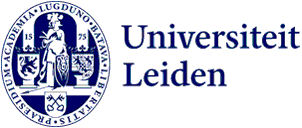
Introducing: Andrea Warnecke
Andrea Warnecke joined the Institute for History in August 2021 as an Assistant Professor in the History and International Studies section. This year, she will get a tenured position. Below, she introduces herself.
Getting to Leiden from Ruhr-Universität Bochum, my gloriously ugly yet beloved alma mater, takes less than three hours down the A12. However, after completing my studies in history in 2006, I took several geographical, professional, and disciplinary detours across Europe before eventually joining Leiden’s Institute for History two years ago.
As a history student in Bochum, I sought to understand the drivers and causes of genocide and of other forms of collective violence. Looking back at the late eighties and nineties, it’s probably fair to say that I grew up at a time when the much belated public reckoning with the German past confronted several societal sectors that had thus far remained off limits. This reckoning was omnipresent at school, on TV, and in young adult literature and, together with the so-called new wars of the 1990s, it fueled my desire to understand and explain the seemingly unexplainable.
Life is full of coincidences, chances, and odd encounters, and a bizarre combination of these led to my first job as a researcher at Bonn International Center for Conflict Studies (BICC). BICC is a non-profit think tank and consultancy that conducts research and trainings in the peacebuilding and post-war reconstruction field. During the next five years, I carried out research on post-war peacebuilding interventions, often on behalf of governments and international organizations. While I learned a great deal from these assignments and met many dedicated project teams, I was puzzled by the seeming absence of politics from virtually all peacebuilding measures. On the one hand, assessments undertaken in the planning stages of peacebuilding programmes scrutinized key stakeholders, issues, agendas, and interests. On the other, most programmes subsequently sought to ‘build peace’ or ‘manage conflict’ through standardized development measures such as governance reform or youth employment. The absence of history and politics from peacebuilding seemed all the more surprising given the widespread disillusionment regarding the impact of multilateral peacebuilding among leading organizations.

As I became increasingly puzzled by this absence, I also grew frustrated with the limits of applied and commissioned research which usually required us to formulate a few handy policy recommendations on complex issues within a mere matter of months. I therefore decided to turn my curiosity into a research project and pursued a PhD in Political and Social Sciences at the European University Institute in Florence. Moving into a new discipline amounted to the most severe culture shock I’ve ever experienced, but those years in Italy will doubtlessly remain among the happiest in my life. The sheer luxury of knowing there’ll be months of guaranteed sunshine and summer regardless of how much time is used (or wasted) at the desk (or elsewhere) made any PhD-related struggle that much easier.
The connections and friendships forged in Florence were an incredible resource in the post-doc years as I moved from the East Austrian countryside to the stunning coastal isolation of Aberystwyth. During these years, I developed my research agenda on the political sociology of institutions and practices of interventions in crisis areas. When I first arrived in Leiden in the second summer of the pandemic, I was therefore happy to reconnect with many old friends during what I anticipated to be another exciting, but temporary academic post. Little did I know that Leiden University, with its fascinating contrasts between picturesque old university town and Den Haag’s busy international centre, was to become my new academic home. I’m truly thrilled and grateful to continue developing in an academic environment that values disciplinary diversity and tension, and to contribute to a great team of colleagues, many of whom have become friends.
